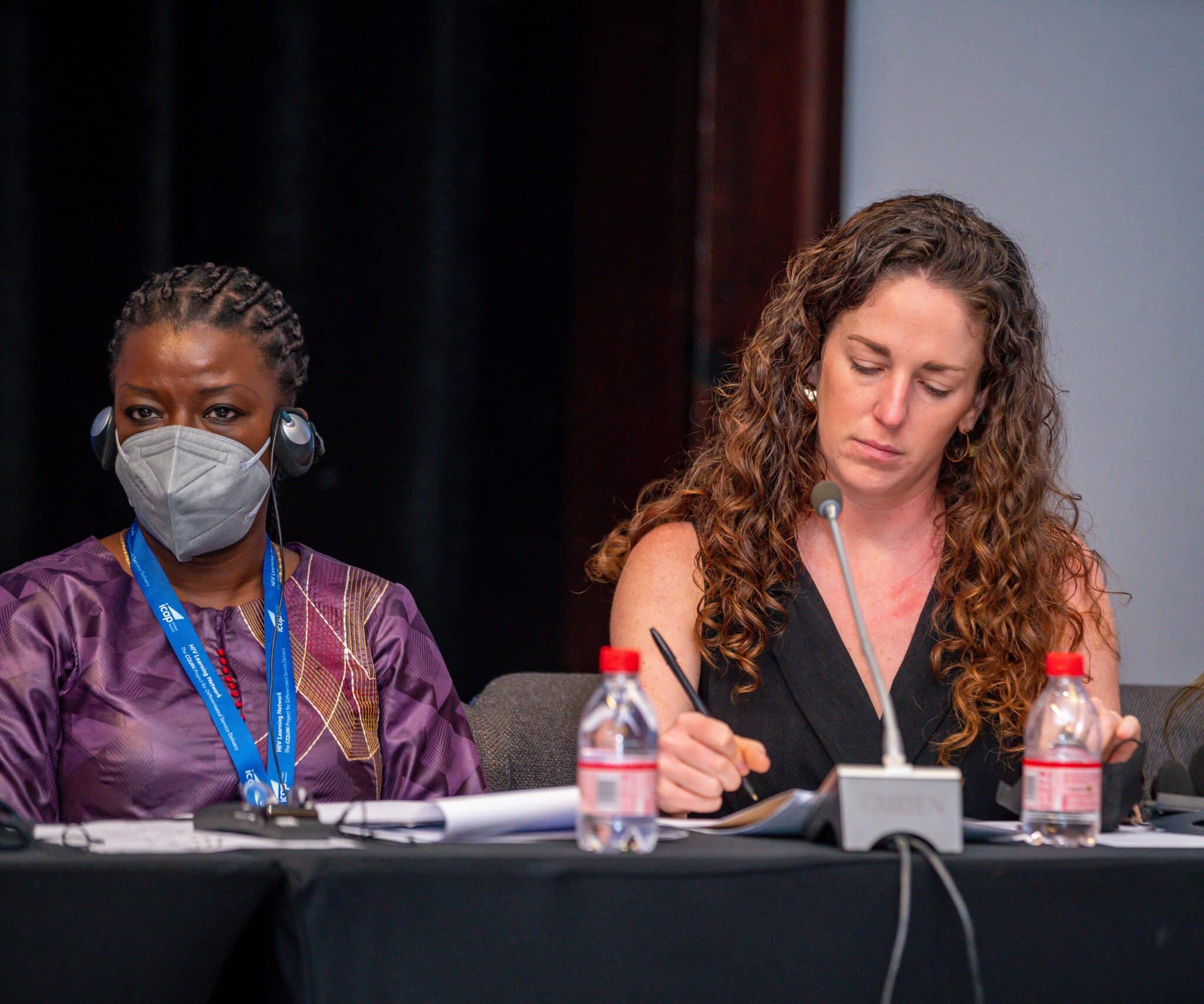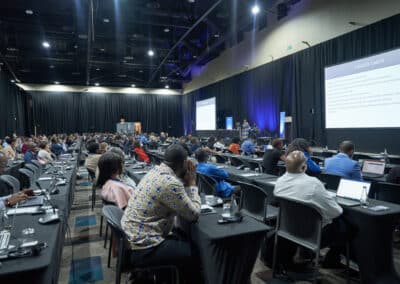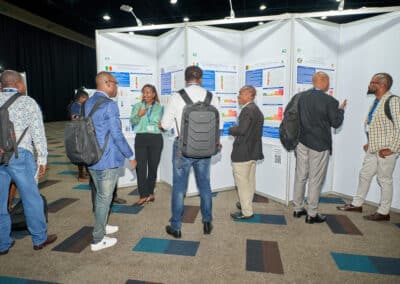When ICAP began to develop and pilot a differentiated HIV testing services capability maturity model for countries in the CQUIN network, the ICAP CQUIN team consulted multiple global, regional and national stakeholders, including the Clinton Health Access Initiative (CHAI). Like ICAP, CHAI works with ministries of health to strengthen health systems. Megan Ginivan, MPA, is the senior program manager for HIV Testing Services, for CHAI’s HIV Access Program, based in Zimbabwe. Ms. Ginivan participated in CQUIN’s 6th Annual Meeting, where she talked about CHAI’s work in differentiated HIV testing in this Q&A.
How does CHAI work to support differentiated HIV testing services in its partner countries?
CHAI is a main partner to ministries of health, and this current HIV testing grant that we are working on, through funding from the Bill and Melinda Gates Foundation, is really geared towards building the capacity of national programs to deliver effective evidence-based services today and also capacitate them to meet the future needs of testing. We’ve taken a systems approach in mapping out our theory of change – key systems levers for testing and data for decision-making, governance, coordination, resource mobilization, implementation capabilities, and community engagement, which we see as a core element of a national system. So really working with ministries to build capability and capacity within these core competencies or core systems pieces so that overall, the national HIV testing services system has the capacity to identify and define national strategies that are going to meet the needs of diverse clients, respond to the evolving epidemic in that country, aligned with program goals, and the capacity to deliver and execute on them.
How does the CQUIN approach, using capability maturity models (CMM), complement this process?
So CQUIN’s approach with the capability maturity model is highly complementary to CHAIs’ in several ways. We call them levers, you call them domains, but they are really capturing the same thing. The alignment of core competencies and components of a national system really aligns well with how we were thinking about testing systems and how they’ve been captured in a capability maturity model, and I’ve seen a couple of ways in which the CMM tool has been useful. One way is driving consensus and alignment on what a strong national testing program is. When partners like CHAI say our goal is to strengthen the national testing program, what does that mean, and what does that look like? The CQUIN tool has been helpful in coalescing partners around that for everyone to come to a consensus on that reading. The CQUIN tool has also been helpful in aligning partners on what the gaps and opportunities are in countries. The last helpful piece is that the assessment centers national systems. HIV testing is a heavily partnered space, and as a result, countries have different parallel systems where partner reporting tools may not align with national reporting tools. Certain strategies like self-testing, index testing, and social network strategies have been heavily partner-driven, given the resources and complexities of scaling up those approaches. We see a definite shift toward national ownership and implementation strategies with the CMM. What has been helpful about CQUIN’s tool is how it encourages the assessment and scaling up of a national system, not what is happening parallel to that.
Thinking about the CQUIN differentiated testing meeting planned for March, what would make that a success? What could countries take from that meeting to improve their national dHTS programs?
First, evidence. This is not unique to testing, but the approaches and strategies must be grounded in evidence. Over the last couple of years, we’ve seen strategies being rolled out in the testing phase and pushed from a global level down. However, these strategies didn’t align with what evidence was suggesting and what the reality was at the country level. So I think what’s valuable and unique about the CQUIN platform is that countries truly drive the content being shared and what is coming out of implementing HIV programs in their contexts. I think now that CQUIN is expanding into testing, countries can now highlight what the evidence is showing at a country level. So, what are the best practices and experiences of delivering testing services, and how can we learn from that to ensure we’re making evidence-driven approaches to testing? These should be the main takeaways.
CQUIN will host the Differentiated Service Delivery across the HIV Testing Cascade: Leveraging DSD Strategies to Optimize Mobilizing, Testing, and Linkage to Post-Test Services meeting in Nairobi, Kenya, from March 13 to 16, 2023.






